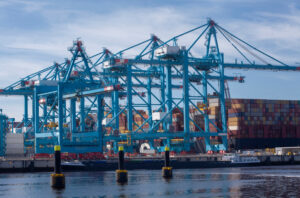The USA has postponed for two years new rules requiring cargo containers destined for the US to be scanned prior to their departure from overseas.
The Director General of the British International Freight Association (BIFA), Peter Quantrill, stated that it was ‘hardly surprising’ to hear the announcement.
BIFA has long maintained that expanding screening with available technology would slow commerce, drive up consumer costs yet bring no significant security benefits.
Quantrill also went on to say that the department for homeland security had underestimated the extent of the task at hand, which was relative to the costs expended by the US, as well as the limited capacity of scanners to penetrate dense cargo and large order quantities.
He added: “The US Government now doubts whether it would be able to implement the mandate of 100 per cent scanning; it is not the best use of taxpayer resources to meet the USA’s port security and homeland security needs.”
The Director General’s comments followed a letter from the Chairman of the Senate Committee, Thomas Carper, who stated: “The scanners would have a negative impact on the flow of cargo and trade capacity.”
With this statement in mind, BIFA still believes the US Government should rebuke the original legislation.
This was in line with comments to suggest that real solutions such as risk-based management systems would be appropriate to address the security gaps in global supply chains.








